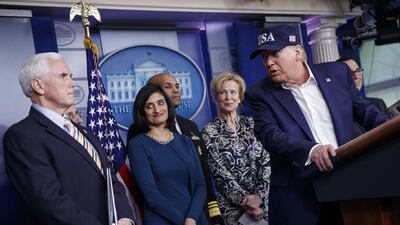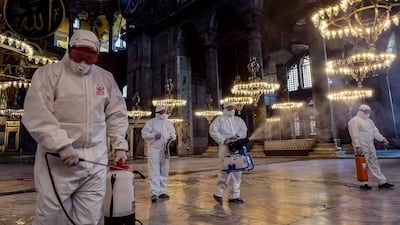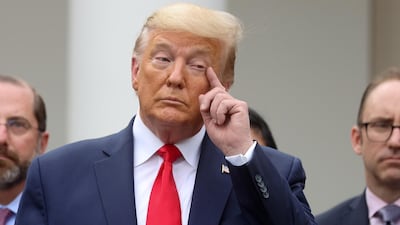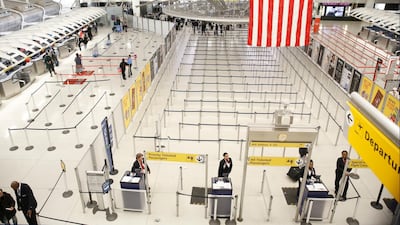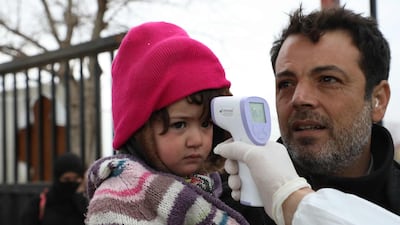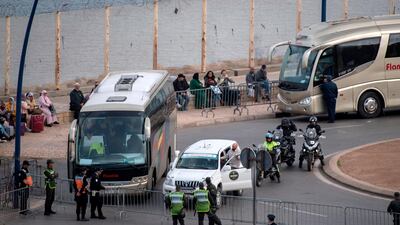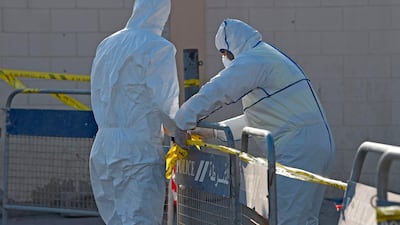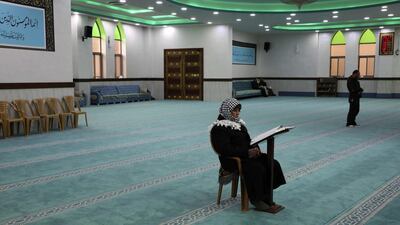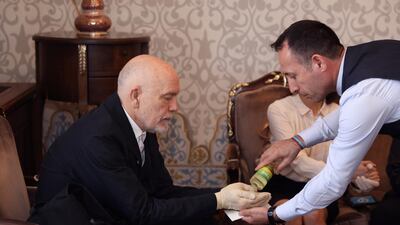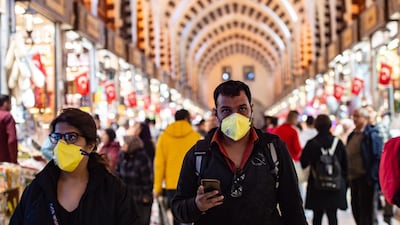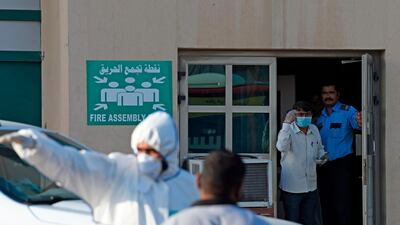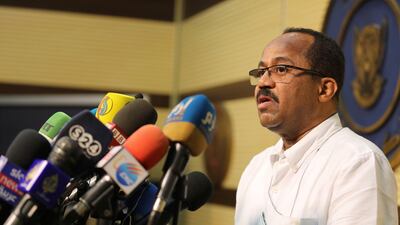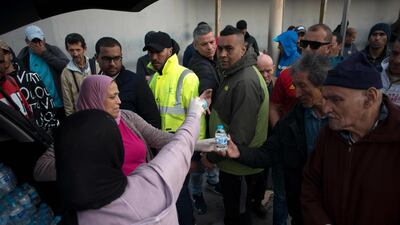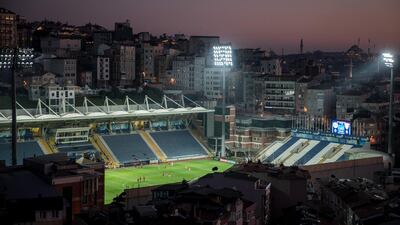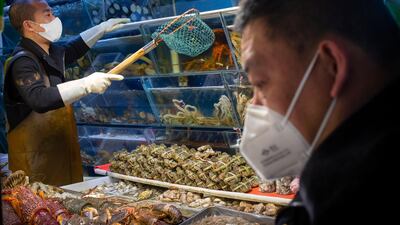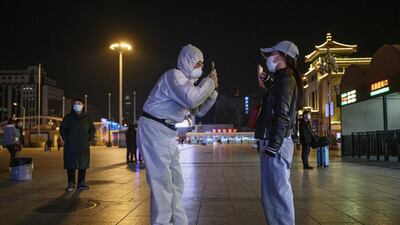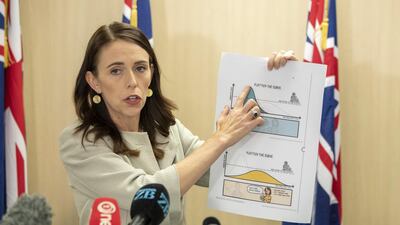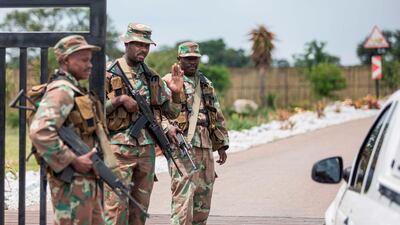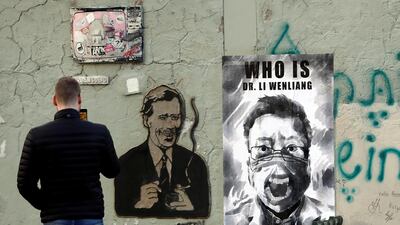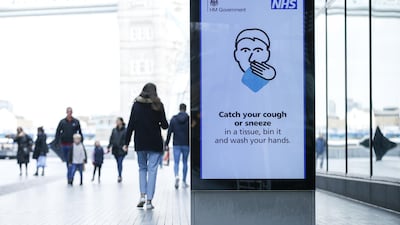President Donald Trump has tested negative for coronavirus, the White House has said.
Mr Trump told reporters hours earlier that he had taken the test for the novel coronavirus, known as Covid-19, following days of resisting being screened.
"Last night after an in-depth discussion with the president regarding Covid-19 testing, he elected to proceed," a memo from Mr Trump's physician read.
"This evening I received confirmation that the test is negative," the statement confirming the negative results added.
Earlier, Mr Trump announced an extension of the United States’ travel ban to Europe, adding Britain and Ireland to the list in a bid to contain the spread of coronavirus.
At that press conference, the president confirmed he had taken a test for the virus.
He added Washington would also consider imposing travel restriction within the US to areas worst hit by the coronavirus outbreak.
Under the measures, US citizens, green card holders and others will be allowed to return home to the United States. However, they will be subjected to health screenings and possible quarantine requirements after they are processed through 13 designated airports.
"If you don't have to travel, I wouldn't do it," Mr Trump said.
The White House has also tested the temperatures of everyone who's been close to president. Mr Trump earlier described his own temperature as normal and said he was feeling fine.
The new travel restrictions come as Britain has seen its death toll from the virus nearly double from the day before to 21, and the number of people infected rise to over 1,100 from about 800 the previous day. Ireland had 90 confirmed cases and one death by Friday. The Irish government hasn't released any updated figures since.
In Italy, the country worst hit by the coronavirus crisis in Europe, authorities reported their biggest day-to-day jump in number of infected cases of Covid-19.
National health authorities told reporters on Saturday that health officials recorded 3,497 new cases in 24 hours. That is roughly a 20 per cent increase in cases from the day before.
A little more than half of those new cases occurred in Lombardy, the northern region which has been hardest hit in Europe's worst outbreak.
The US said earlier in the week a 30-day ban on flights covered only the 26-nation Schengen area, the European Union's border-free travel zone. US Vice President Mike Pence said the restrictions on Britain, which is no longer part of the EU, and Ireland, which lies outside the Shengen area, would go into effect midnight on Monday night.
The British government hasn't yet restricted everyday activities of residents by banning large public gatherings or suspending transit networks.
However, domestic media outlets reported on Saturday that authorities were considering banning gatherings of 500 or more people as early as next weekend.
Schools in Northern Ireland were operating as usual but across the border in the Republic of Ireland, schools, colleges, day-care centres and cultural institutions were closed.
France on Saturday drastically stepped up its measures against the spread of the coronavirus, announcing the closure of all non-essential public places including restaurants and cafes from midnight.
"I have decided on the closure until further notice from midnight of places that receive the public that are non-essential to the life of the country. This includes notably cafes, restaurants, cinemas and discos," French Prime Minister Edouard Philippe told reporters.
Top health official Jerome Salomon meanwhile announced that the death toll from COVID-19 had risen by 12 over the last day in France to 91, with the total number of infected standing at 4,500.
Begona Gomez, the wife of Spanish Prime minister Pedro Sanchez, has tested positive for coronavirus, the Spanish prime minister's office said, adding that both were doing fine.
Spain's government announced Saturday that it is placing tight restrictions on movements and closing restaurants and other establishments in the nation of 46 million people as part of a two-week state of emergency to fight the sharp rise in coronavirus infections.
Spain has followed Italy's path in implementing a similar lockdown after both European countries failed to contain the virus in regional hotspots.
Spanish Prime Minister Pedro Sanchez detailed the battery of exceptional measures in a nationally televised address after holding a Cabinet meeting that lasted over seven hours.
